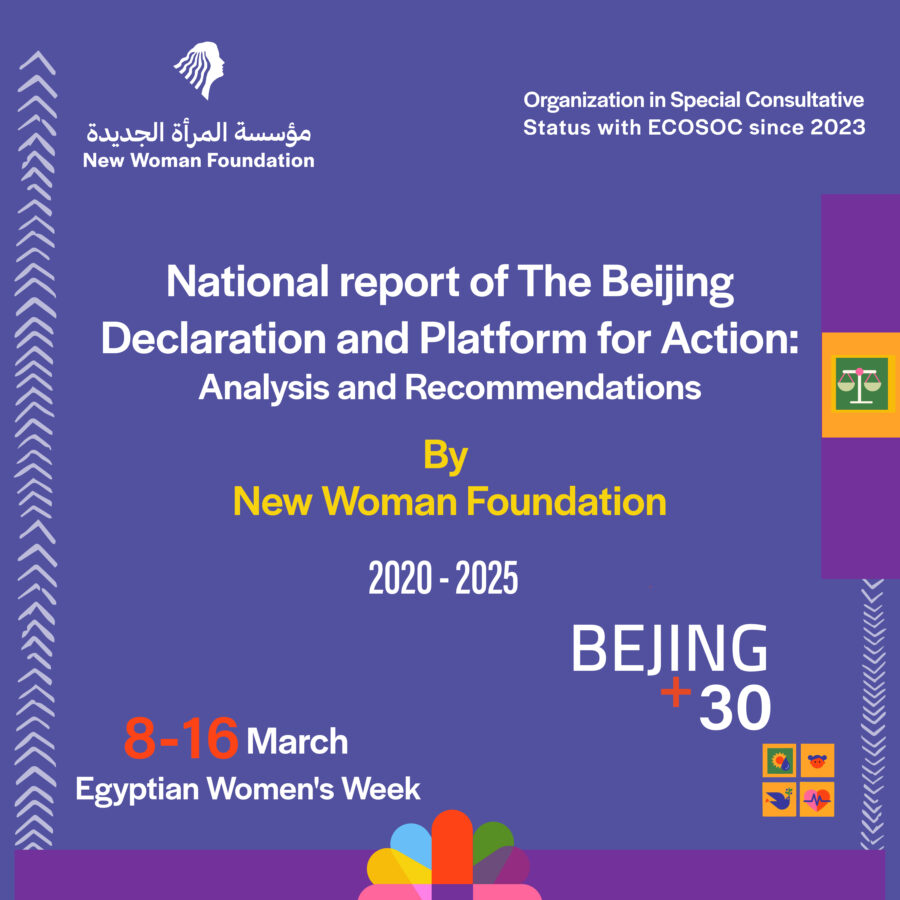- Contact Us
- 0020233382706
- nwrc@nwrcegypt.org
Women in the Workforce in the Arab World
Employment Policies from a Gender Perspective Women and Employment in the Formal Sector A Policy Paper
July 18, 2015
Lebenese Women Enter the Business World from Home
July 26, 2015A great debate has been raging over whether the so-called Arab Spring has been good or bad for the women of the region. Some argue that the rise of Islamist governments in places like Egypt and Tunisia has led to a stark reversal of women’s rights. Others believe that the vibrant social and political activism that has been born from these revolutions will pave the way for a more robust female presence in society and government than that which existed under authoritarian rule.
Into this debate stepped Nadereh Chamlou, senior adviser to the chief economist for the Middle East and North Africa at the World Bank. Chamlou’s recent roundtable at the Council on Foreign Relations served as an important reminder that the struggle for women’s empowerment in the Arab world may depend less on who runs the government than it does on their ability to progress in the economic sphere.
Chamlou noted that true and lasting democratic change relies in large part on the creation of a strong middle class, one that obviously includes the full and equal economic participation of women. Unfortunately, not only are women’s labor force participation rates in Arab countries among the lowest in the world, female unemployment rates are far above the region’s averages. That makes the creation of a strong middle class much more difficult to sustain, which in turn makes a secure democracy–one that ensures the rights of women–less likely to develop.
“[T]he less economic opportunities women in the Arab world have, the less hope there will be for the creation of a stable, viable, and democratic future.” Reza Aslan, Council on Foreign Relations
The irony is that Arab women are both supremely qualified and perfectly positioned to play a productive role in the region’s labor force. With the exception of Yemen and Morocco, female literacy rates in the Arab world are roughly equal to those of men, though women make up a larger talent pool than their male counterparts. While the number of male and female college graduates is fairly equal (5.1 million women as opposed to 5 million men), Arab women outperform men even in the hard sciences. Indeed, the share of women graduates in the sciences is higher in the Middle East than it is in Western Europe. So then, if women in the Arab world are acquiring the skills in the fields of technology, engineering, and sciences necessary to compete with men in these new and emerging markets, why do they not have the same opportunity to succeed in the labor force?
The fact that this impression of a region dominated by sharia happens to be incomplete if not downright false is irrelevant. As most Middle East analysts concede, this is a region of the world where perception often trumps reality. The bottom line is that simply the impression that women are being trampled by the boot of sharia in places like Egypt and Tunisia–whether accurate or not–has caused the entire region to lose its competitive advantage in the global market because it has denied women an equal place in the work force.It seems the answer may have as much to do with perception as it does with reality. Chamlou surveyed five thousand firms in Europe that regularly offshore white-collar jobs to the Middle East. In general, these companies said they would prefer to hire women over men because they viewed women as better employees, mainly because they excel in the so-called “soft skills:” that is, they are more dedicated, more trustworthy, more reliant, etc. However, when asked to rate what they saw as the greatest impediment to hiring Arab women, by a wide margin these companies cited “sharia” as the main reason. Of course, by sharia, they did not mean the vagaries of Islamic jurisprudence, which varies widely from country to country and about which the heads of European multinationals are very likely ignorant. They simply meant their own perception of the cultural limitations that exist in the Arab world when it comes to the rights and privileges of women. In other words, these companies were wary of hiring of Arab women, despite the fact that they prefer female employees, because they assumed that the restrictions placed upon them by their societies would keep them from succeeding at their jobs.
The gulf monarchs of the Emirates are now taking steps to alter this widespread perception. Chamlou highlighted the efforts of Dubai’s Sheikh Muhammad, who recently enacted a plan to force all public boards in the country to be composed 50 percent of women. While that is certainly a huge step toward greater economic progress for Emirati women, it is important to note that such decisions are obviously easier to make in a dictatorship than in a democracy. Nevertheless, the emerging democracies of the Arab world could learn a lesson from the Emirates about the value of changing the impression companies have of their female labor force. Because the less economic opportunities women in the Arab world have, the less hope there will be for the creation of a stable, viable, and democratic future.



